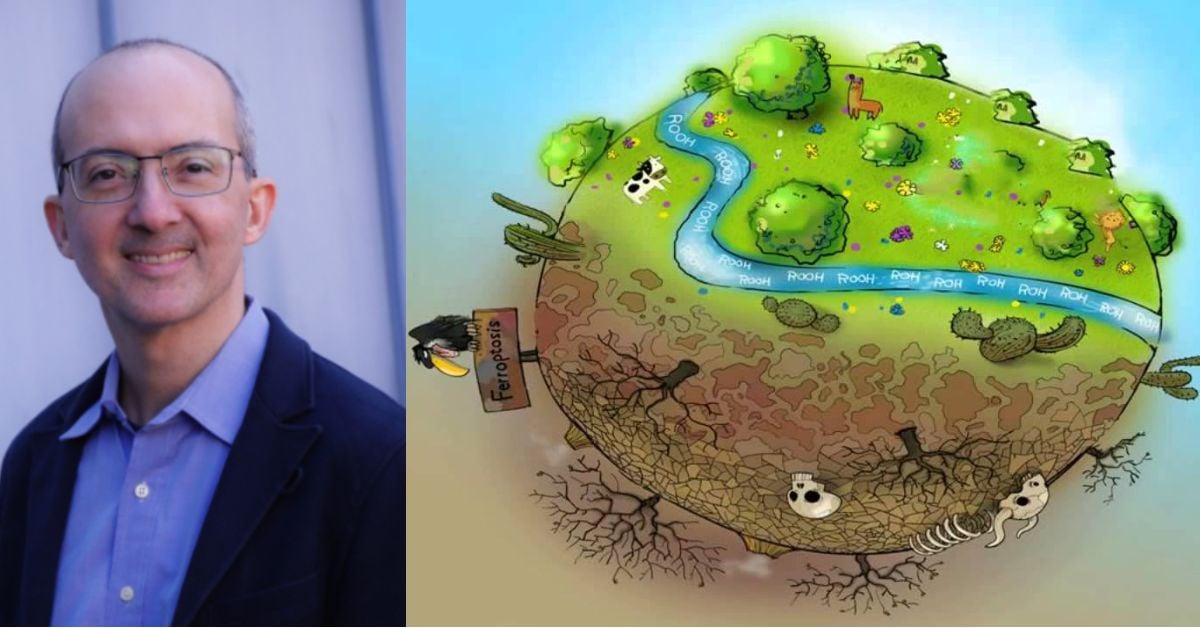Getting to Know Brent Stockwell, PhD
Date Posted: miércoles, febrero 28, 2024
We are excited to host our first ever recipient of the MetNet Pioneer in Metabolism Award, Dr. Brent Stockwell. Brent is Chair of the Department of Biological Sciences and a Professor at Columbia University. Through a series of landmark studies from 2003-2012, he discovered and characterized a new form of nonapoptotic cell death involving iron and lipid peroxidation, coining the term ‘ferroptosis.’
Since then, interest in ferroptosis has skyrocketed as it is found to be an exploitable vulnerability of cancer cells and is involved in other disease contexts including autoimmunity, neurodegeneration & ischemic injury. Importantly, it is a process that is intertwined with metabolism - lipid, iron, glutathione and other metabolic pathways tightly regulate a cell’s sensitivity to ferroptosis.
Brent received his PhD in Chemistry from Harvard University, then started his lab as a Whitehead Fellow from 1999-2003. In 2004 he joined Columbia University, where to date he has trained more than 100 undergraduate and graduate students. He has published more than 160 scientific articles and has been awarded 23 U.S. patents. Brent has received many awards including the Burroughs Wellcome Career Award, Beckman Young Investigator Award, Dean Peter Awn Commitment to the LGBTQ Community Faculty Award, and NCI R35 Outstanding Investigator Award
As per tradition we asked Brent to answer the following scientific and nonscientific questions:
What was one 'eureka' moment in your discovery and characterization of ferroptosis?
After we discovered erastin, a novel compound that clearly killed by a non-apoptotic mechanism, I wondered if the death process was regulated or not. We did a chemical suppressor screen and I was surprised to see that lipophilic antioxidants could completely protect cells from elastin, even allowing continued cell growth. This convinced me that that there was a specific regulated death mechanism, because it could be so completely blocked.
What do you enjoy most about your job?
I love coming up with new ideas, reading and thinking, and talking to members of my lab. Then being able to design an experiment to test the new idea and seeing the result is thrilling.
What are some good movies, books or streaming shows you have recently enjoyed?
I enjoyed Daniel Dennet’s new autobiography I’ve Been Thinking. He is a philosopher of the mind, and has led a quirky and exciting life. I also enjoyed Stephen King’s Fairy Tale about a high school senior who finds a portal to another universe. It is written in a way that makes it seem like it could really have happened, despite how fantastic the events are.
What hidden talent do most people not know about you?
I’m pretty good at picking up foreign languages quickly - at least enough to get by. When I travel to a new country, I like to spend a couple months learning the language so I can get by in restaurants, taxis, and the airport, speaking the local language. It is a great way to learn new cultures and immerse myself in a new country. Sadly, I usually forget everything I’ve learning within six months and need to start all over on the next trip!
What advice would you give to trainees and/or beginning PIs?
It is important to look for unexpected observations. The NIH and most funding agencies want you to do the obvious experiment, or least build a strong rationale for the experiment you propose. But the exciting advances usually come from an unexpected observation that disrupts your previous model of how things work. Even though it is hard to justify this approach to science in any proposal, it is the more impactful way to make discoveries in my experience.
